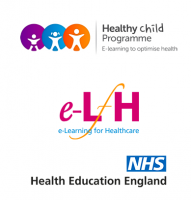Explaining and Consent for GP/Family Medicine professionals



This session explores some of the problems that young people experience when health professionals attempt to provide them with information, and suggests some ways of improving communication and explanation.
Learning Objectives
By the end of this session you will be able to:
- Understand the importance of effective explanations
- Identify barriers to explaining information to young people
- Describe principles of good practice when explaining a new diagnosis to a young person
- Describe principles of good practice when giving information to a young person in order to get their consent before performing a procedure
Ensuring that a young person has a clear understanding of their problem and its management is an essential prerequisite for a number of subsequent stages including:
- Gaining informed consent
- Motivating change
- Concordance and adherence with treatment
- Patient satisfaction
Adequate information can also help to relieve anxiety and stress, especially prior to procedures.
In some ways the skills required to convey information to a young person are no different from those for adults, in that it is important both to establish their prior understanding and to communicate in language which they will understand.
Before commencing this session you should complete the following AH sessions:
- 04_001 Communication Skills in Young People (401-0018)
- 04_002 Health Communication and Young People: Setting the Scene (401-0019)
- 04_003 Gathering Information and Exploring Sensitive Issues (401-0020)
Dick Churchill is a GP in Nottingham and former Associate Clinical Professor at the University of Nottingham. He has both clinical and academic interests in the health of young people and in mental health issues. He is a member of the RCGP Adolescent Health Group and a founder of the Association for Young People’s Health.


Dr Deborah Christie is a Consultant Clinical Psychologist, Honorary Reader and Clinical Lead for Paediatric and Adolescent Psychological Services at University College London Hospitals NHS Foundation Trust. She works with young people searching for ways to live with chronic illness including diabetes, obesity, arthritis, chronic fatigue and chronic pain syndromes. Current research interests include neuropsychological outcomes in children and adolescent survivors of meningitis, quality of life measures in chronic illness and the development of effective multidisciplinary interventions for diabetes and obesity in children and adolescents.
- Mental Health Promotion in the Perinatal Period co...
- Posted By eIntegrity Healthcare e-Learning
- Posted Date: 2024-11-02
- Location:Online
- This session aims to raise awareness regarding the factors that predispose women to mental ill healt...
- Epilepsy in People with Learning Disabilities cour...
- Posted By eIntegrity Healthcare e-Learning
- Posted Date: 2024-11-01
- Location:Online
- This session describes how to provide a high standard of care to patients with learning disabilities...
- Screening Programmes Part 2: Antenatal and Newborn...
- Posted By eIntegrity Healthcare e-Learning
- Posted Date: 2024-11-01
- Location:Online
- This session describes and discusses the NHS Fetal Anomaly Screening Programme, the NHS Newborn and ...
- Screening Programmes Part 1: Pregnancy and Newborn...
- Posted By eIntegrity Healthcare e-Learning
- Posted Date: 2024-11-01
- Location:Online
- This session will describe and discuss the following three NHS antenatal and newborn screening progr...
- Ensuring Quality: Role of the UK NSC, Policy Devel...
- Posted By eIntegrity Healthcare e-Learning
- Posted Date: 2024-11-01
- Location:Online
- This sessions offers you an understanding of how screening programmes are chosen and how their quali...







